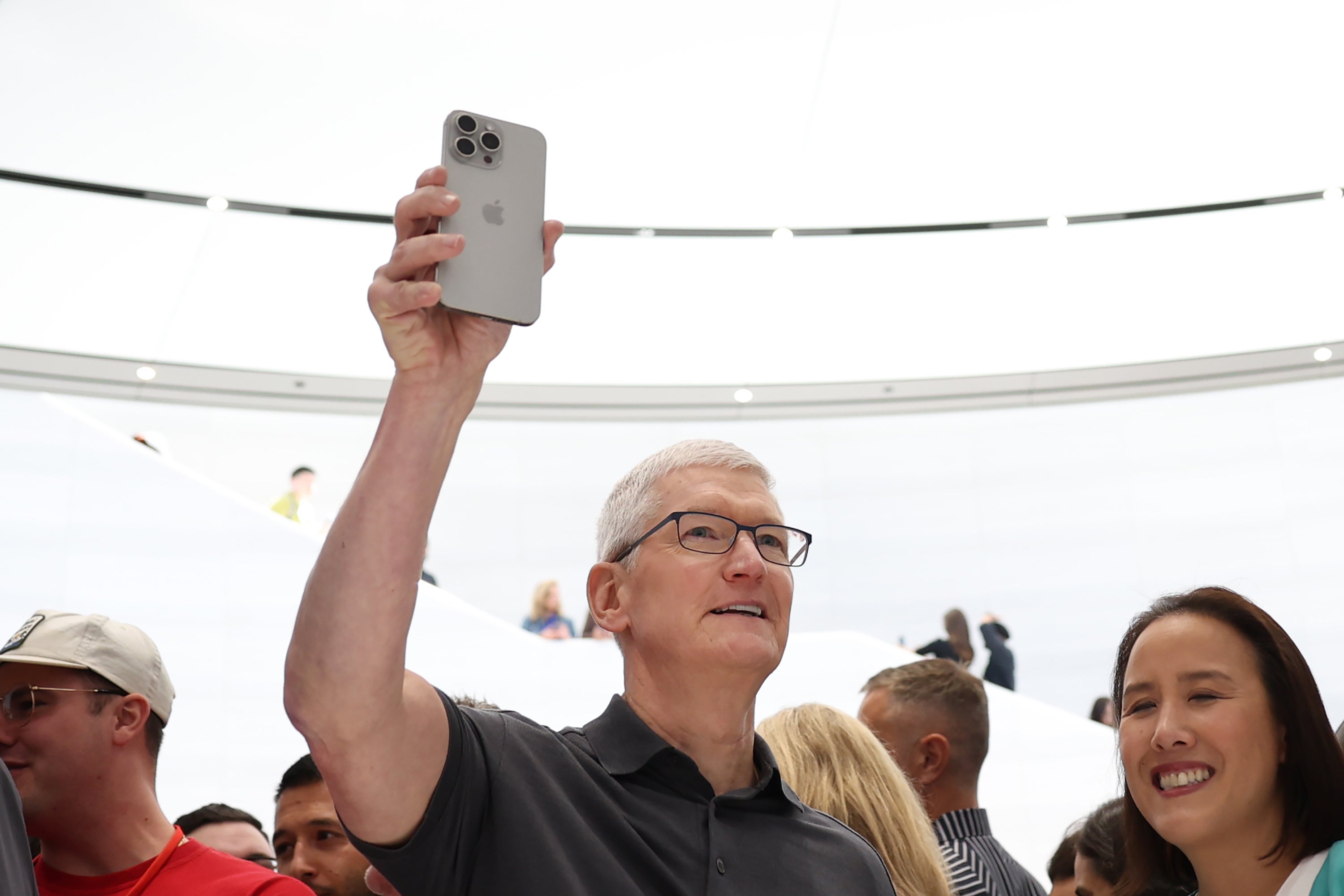The iPhone 15 has gone all grown-up, here’s why we should be grateful
The new iPhone is about improvement, not innovation – and signals a new way of thinking about our handsets, writes Andrew Griffin. Could it be that Apple have devised the perfect upgrade-when-you-can appliance for cash-strapped times?


At Apple's introduction of the iPhone 15 on Tuesday night, many of the biggest announcements were about removing things, not introducing them. There would be no more leather accessories sold with the new devices; there would be no Lightning port on the bottom, thanks to the European Union mandating that Apple switched to USB-C.
In one sense, it was confirmation as some had feared that the new iPhones would struggle to be exciting or new. The iPhone 15 does contain some innovations – a new manufacturing process for the titanium case that makes the Pro models lighter, for instance – but there are no standout, wowing features. Instead, it was made up of iterative changes to the cameras, processors, and so on.
But removing things, and the attendant lack of excitement, might not only be a change of tone in the way we think about the iPhone. They might also mark a significant moment in the development of the technology. Finally, the iPhone might be maturing: growing up, even if that means becoming a little less boring.
Throughout history, the early development of technologies has meant pioneering one breakthrough and then adding complexity and excitement on top of that. Breakthrough piles upon breakthrough until the technology matures. At that point, the process often becomes one of refinement: improvement, not innovation.
The iPhone has surely now reached that stage. This year's relatively humble changes may be an indication that the phone technology has reached something like its mature form: quick processors, sharp cameras, and a straightforward design that consists of a metal almost-rectangle with a display stretched almost over the top.
This might be welcome to customers, especially at a tough time economically. Moving from feeling compelled to upgrade every year or two to treating the iPhone more like a car or an appliance – replace it when it gets old or dies, with whatever's the best in your budget – feels less stressful, and more sensible. And in that context, the new iPhone doesn't need to be exciting when compared with last year's model – because most people won't be upgrading from that, but from a few iPhones back, which means getting a whole host of innovations in one go.
The iPhone has been in this kind of place before, a decade ago. Around 2013, when the iPhone 5S launched, complaints started that Apple had lost its touch. (Ironically, given that year's big feature was the introduction of the TouchID fingerprint sensor.) Then the next year came the big iPhone 6, and the extra size was enough to trigger a bumper year of sales. Things started to slow a little again, until Apple released the iPhone X in 2017, which was a big move towards Apple's dream of just making a sheet of display.
But this time around, Apple might be ready for the iPhone to take its place as the mature platform – not least because it has a new one on its way. The Vision Pro virtual reality headset was revealed in June, and will arrive early next year, bringing with it not just a new product but a whole new way of thinking about them, in the form of "spatial computing". Vision Pro will no doubt become the hot new thing – with all the excitement and uncertainty that entails – and Apple might be happy to let the iPhone grow up into a reliable if somewhat unexciting older sibling.
Besides, maturity doesn't mean slow sales, or even a lack of surprises. The Mac – first introduced in 1984 – is now perhaps the very definition of a grown-up Apple product. But after some worries that Apple was killing off the product line in favour of the iPad, recent years have seen the Mac revitalised, with new Apple Silicon chips and hardware designs. It has paid off, and Mac sales have grown, even as the laptop industry as a whole has stagnated.
There may be surprises still to come. Apple, famously secretive, no doubt has a variety of innovations being cooked up and waiting to be slotted into future iPhones; among other things, one day it will surely be able to remove the notch or island from the top of the display, and finally achieve its vision of one big sheet of glass. Growing up doesn't mean abandoning your dreams; sometimes it just means that they might take a little longer.


Join our commenting forum
Join thought-provoking conversations, follow other Independent readers and see their replies
Comments